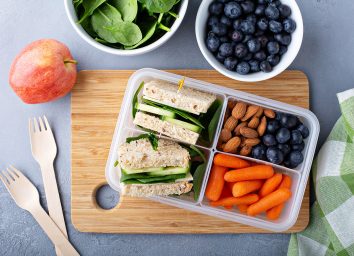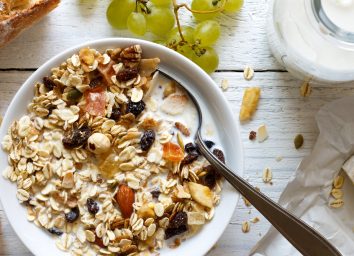11 Bad Kitchen Habits You Need To Stop Immediately
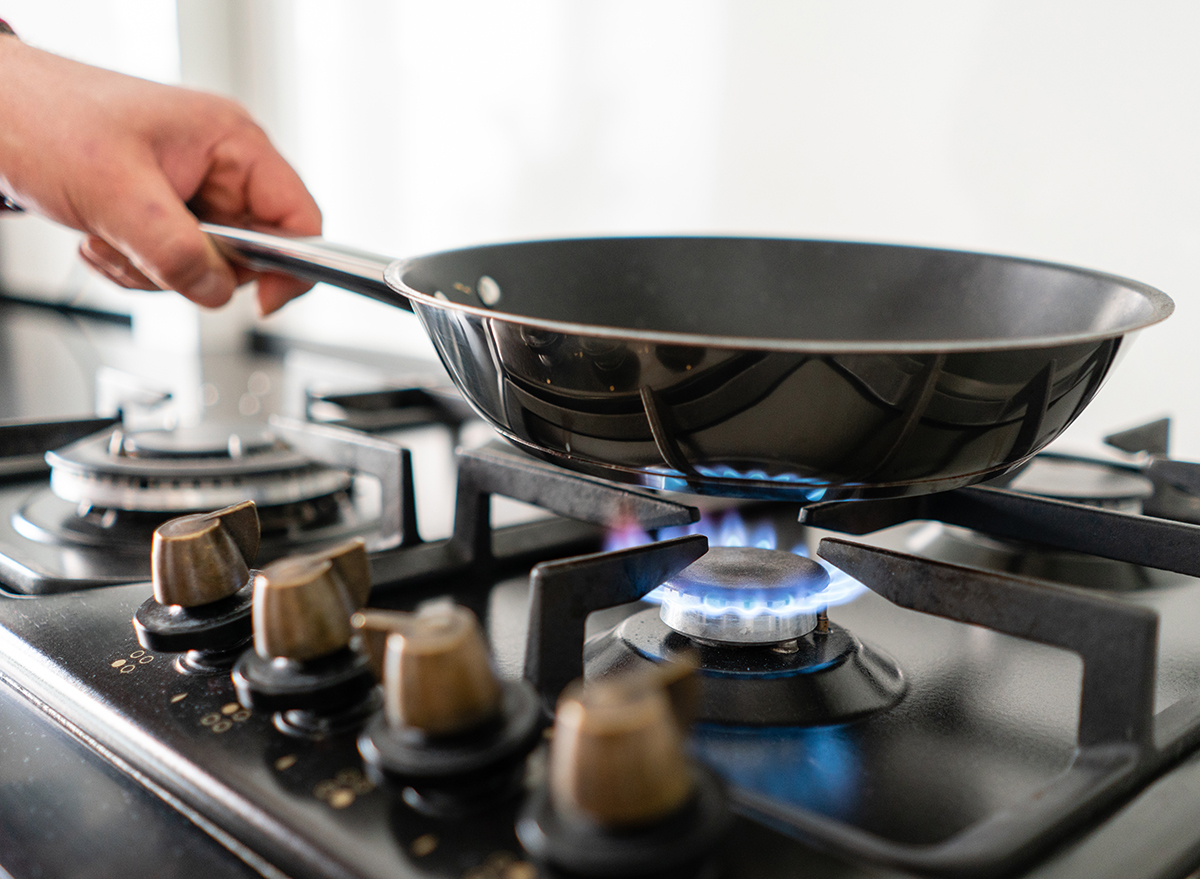
We are cooking in the kitchen these days probably now more than we ever have. With numerous people working or attending school from home, the kitchen has become a frequented room for many. While cooking in the kitchen can certainly be a joyful and therapeutic activity, if you're not careful, you might pick up on a few bad kitchen habits that could ruin your recipes—or even make you sick!
In order to ensure that you're making the most of your recipes, your appliances, and even the cleanliness of your kitchen, we rounded up a few important bad kitchen habits that you need to start avoiding. Plus, once you're cleaned up your cooking habits, try our 22 Meals to Melt Belly Fat in 2022.
You're not letting your skillet properly heat up.
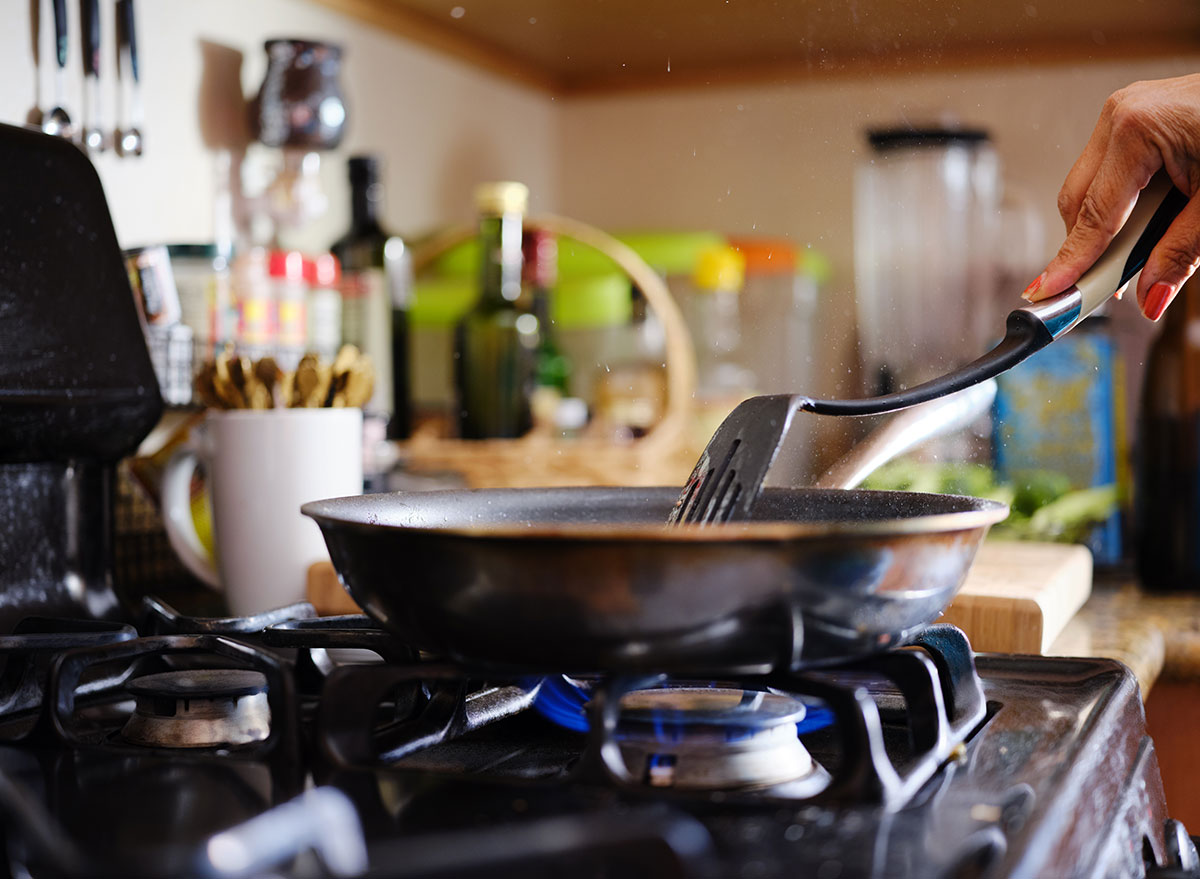
If a recipe calls for you to cook something over medium or medium-low heat, you want to make sure that the skillet is actually at that proper temperature. Especially if you need to cook something for a particular time period—you don't want undercooked food! Give your skillet a minute or two to heat up properly before starting your recipe.
If you're a fan of skillet recipes, then you're going to love our list of 35 Quick and Amazing Cast-Iron Skillet Recipes.
You're cooking things on high heat.
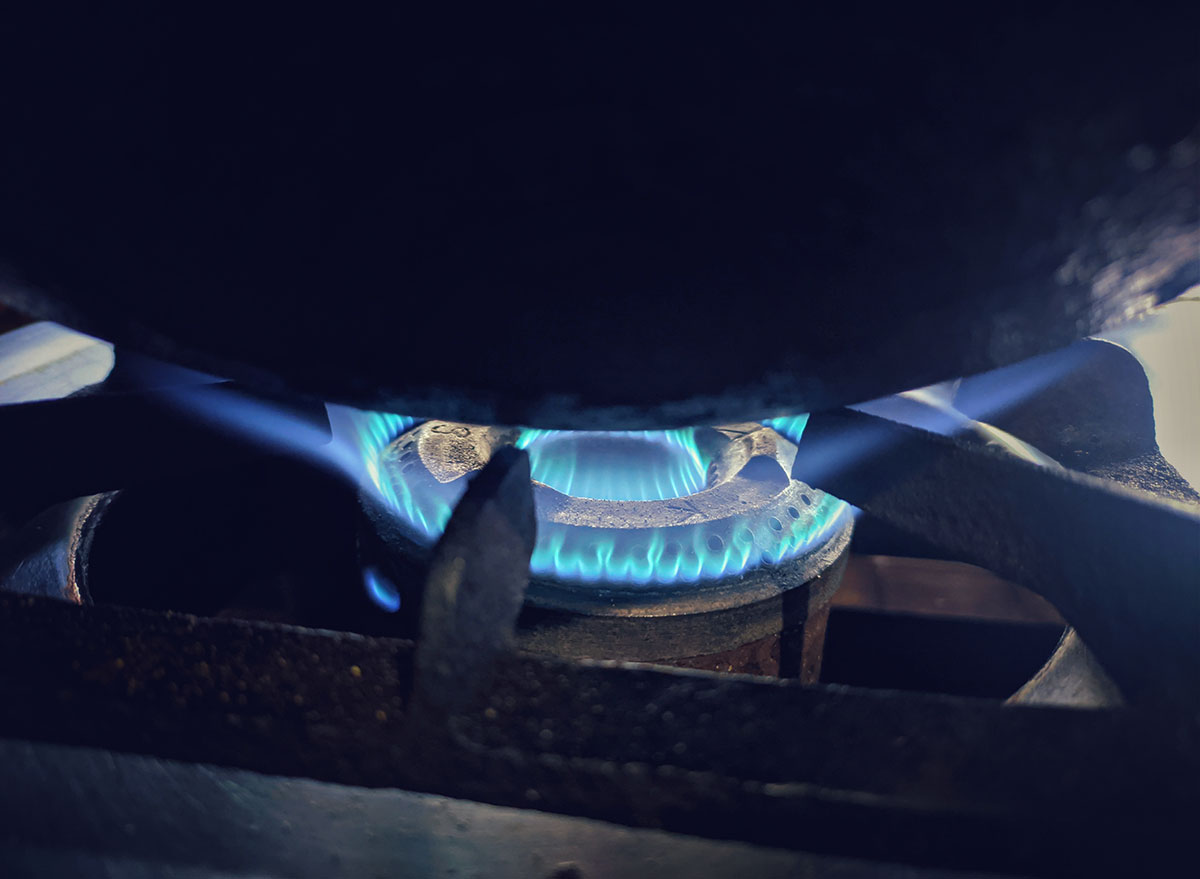
It's good for the skillet to be heated before you start cooking, but you certainly don't want it to be overheated. If you're cooking something at a particular temperature and it starts to char, it's likely the skillet is too hot (unless the recipe calls for you to char something). This is particularly important if you're flipping pancakes! The skillet will likely heat up even more, so make sure to turn it down before pouring the second batch of pancakes on the pan.
You're cleaning your cast-iron skillet with soap.
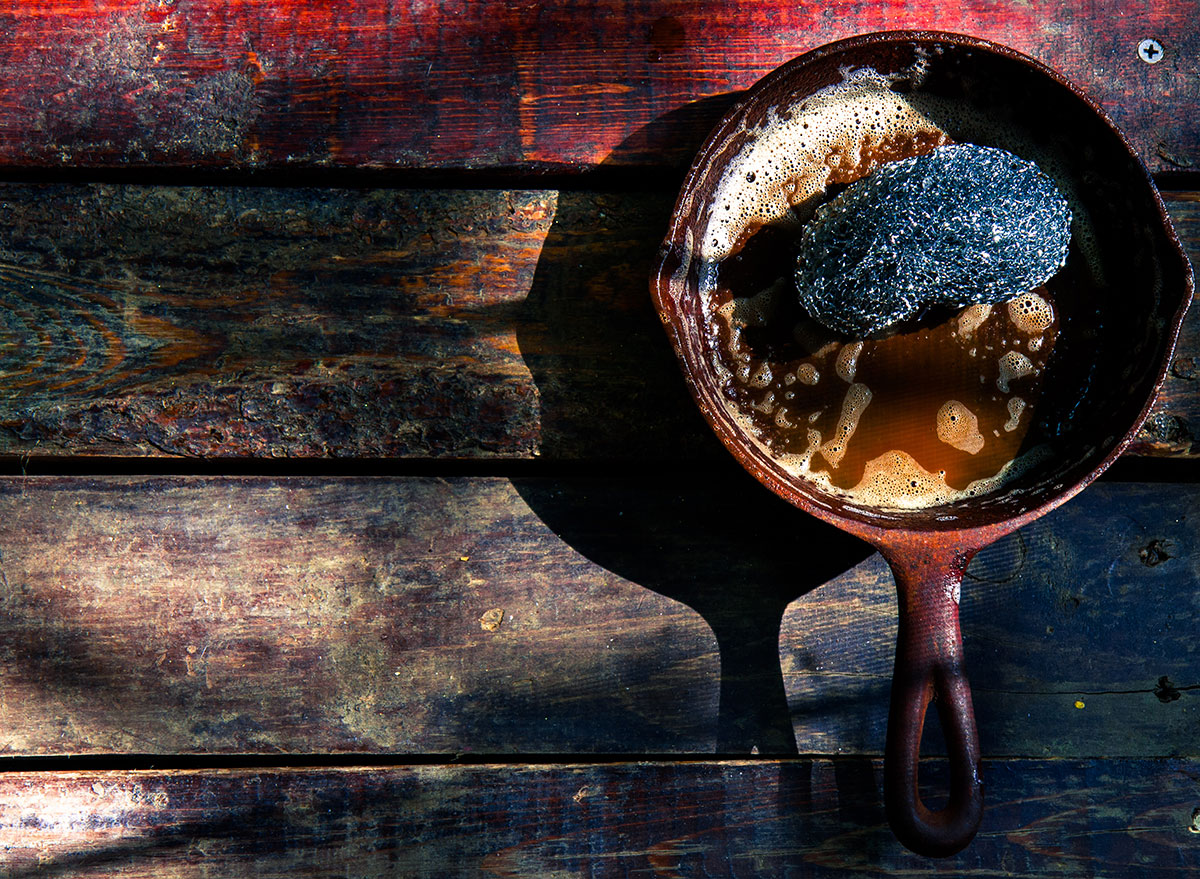
If you have a seasoned, non-stick cast-iron skillet, the last thing you want to do is ruin the seasoning with a lot of soap. While a small amount of soap is okay—especially if you're trying to get some harder food bits from browning something—it's not good for the skillet to be immersed in soap all the time. A true non-stick skillet will be able to wash fine with some warm water, and abrasive sponge, and good ol' elbow grease.
Here are 13 Ways You're Ruining Your Cast-Iron Skillet.
You're not seasoning your skillet between uses.
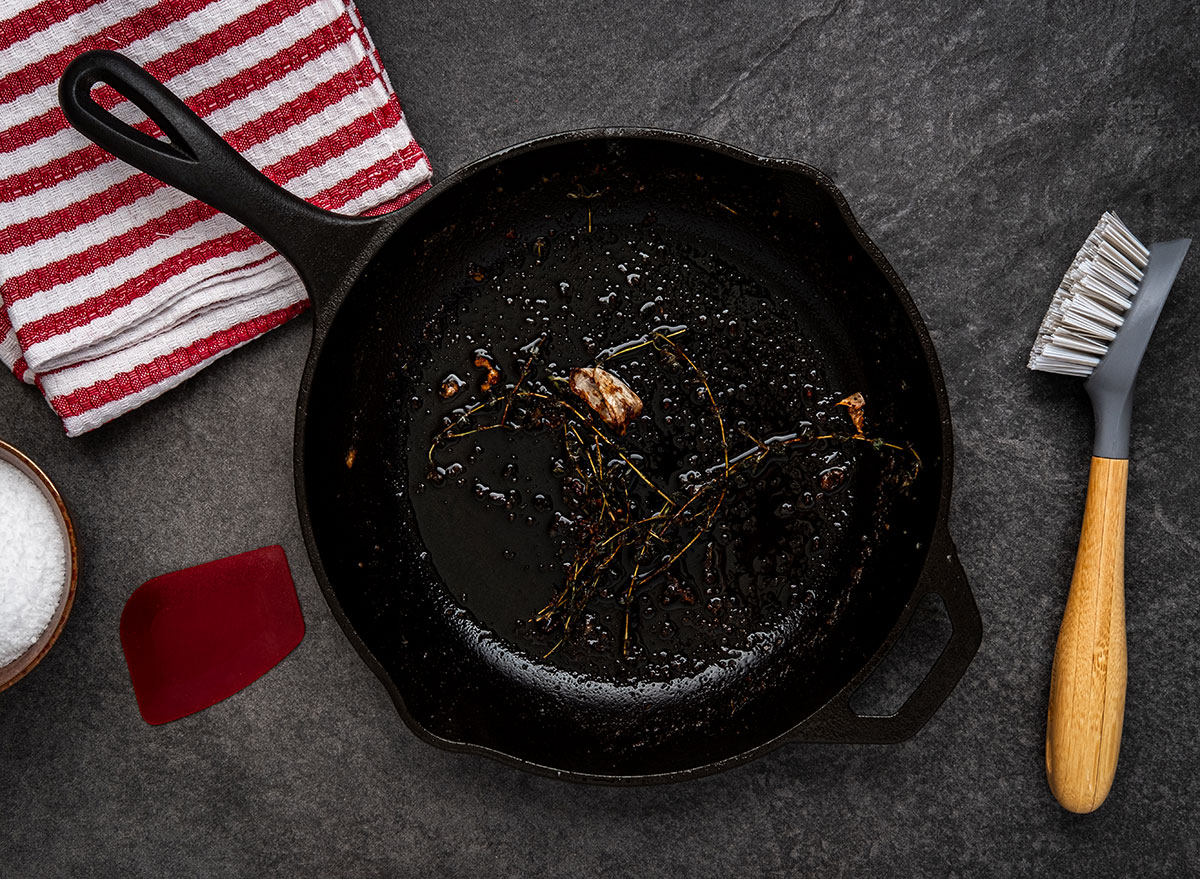
To keep a nice non-stick coating on your cast-iron skillet, it's important to season it between washes. After washing out your skillet (with as little soap as possible), rub a small amount of oil on your skillet and leave it to dry. Vegetable oil works well, especially if you grab a container of shortening. You can scoop out a small amount and wipe it around the surface of the skillet with a paper towel. Here's How To Season a Cast-Iron Skillet So That It Lasts for a Lifetime.
You're not letting meat rest.
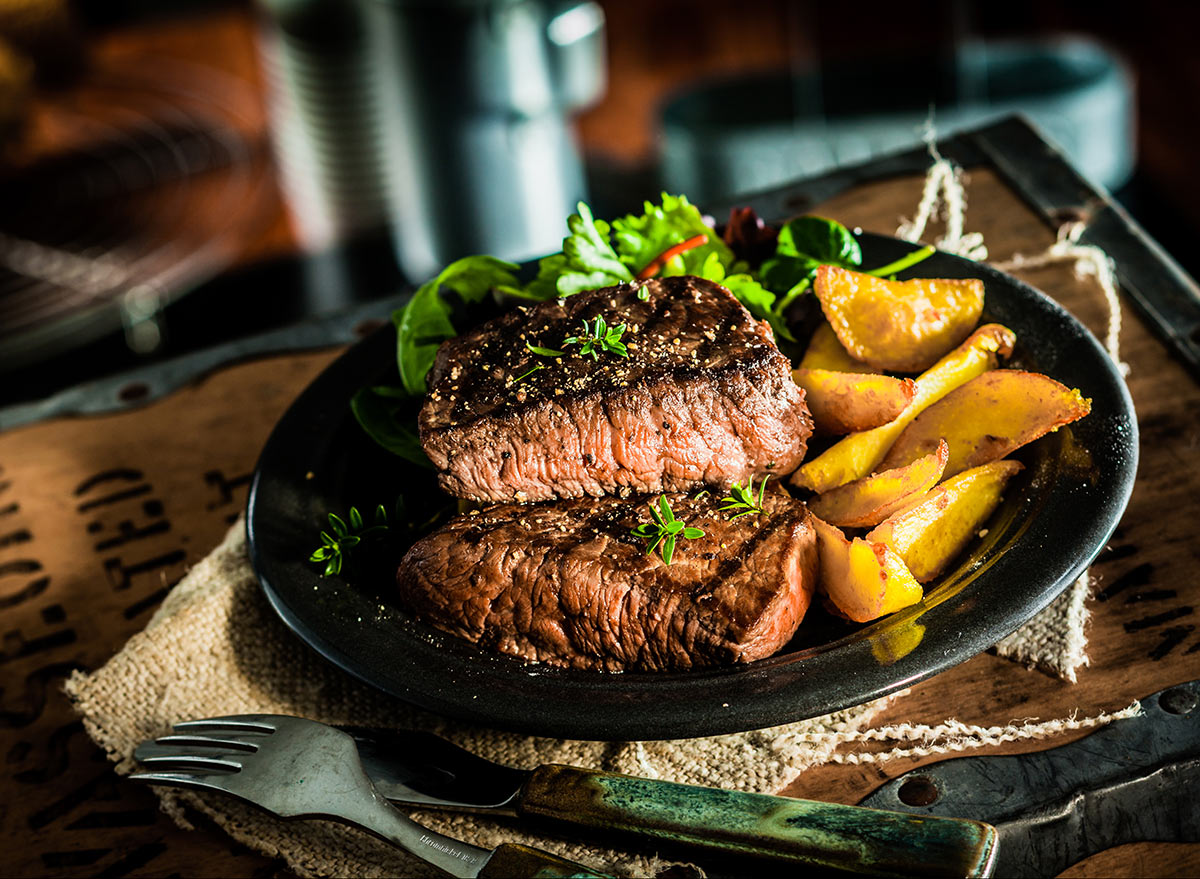
If you're cutting into a steak immediately after pulling it off the grill, be warned! Your steak will likely become tough as you continue to eat it. That's because you didn't give time for your meat to rest after cooking it. When you cook a piece of meat, the juices usually come to the surface. By cutting it open, those juices will tumble out. The resting period—about five minutes—allows for the juices to seep back into the steak, creating a juicy piece of meat. You should also "tent" the steak by loosely placing a piece of aluminum foil over it during the resting period.
You're not shredding your own cheese.
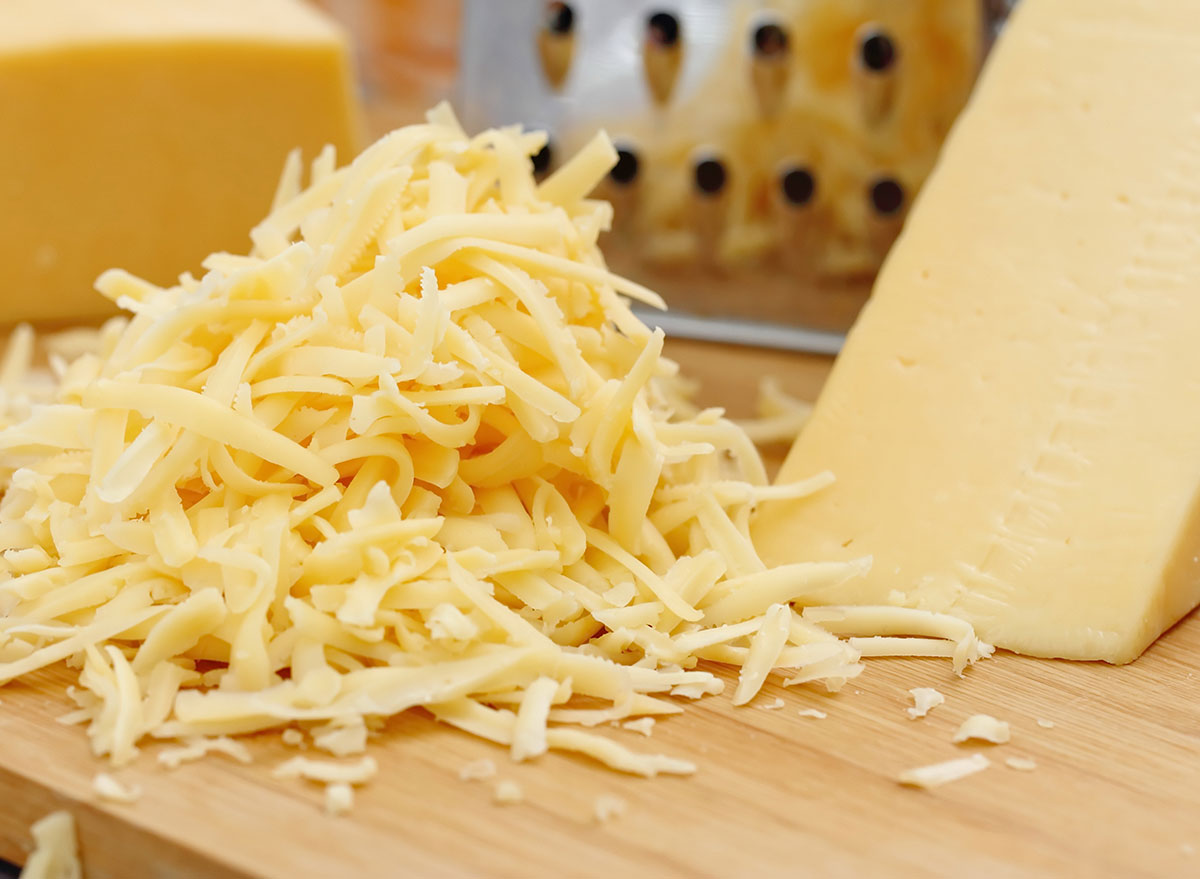
Did you know the shredded cheese in that bag in your fridge actually is covered in cellulose? Cellulose is an anti-caking agent used so the cheese doesn't stick together in the bag, which can actually destroy some of your recipes. If you're making homemade mac and cheese or even a pizza, shredding your own cheese will stick together nicely, and create long strings of cheese that you desire for those types of dishes.
You forget to add salt when cooking pasta.
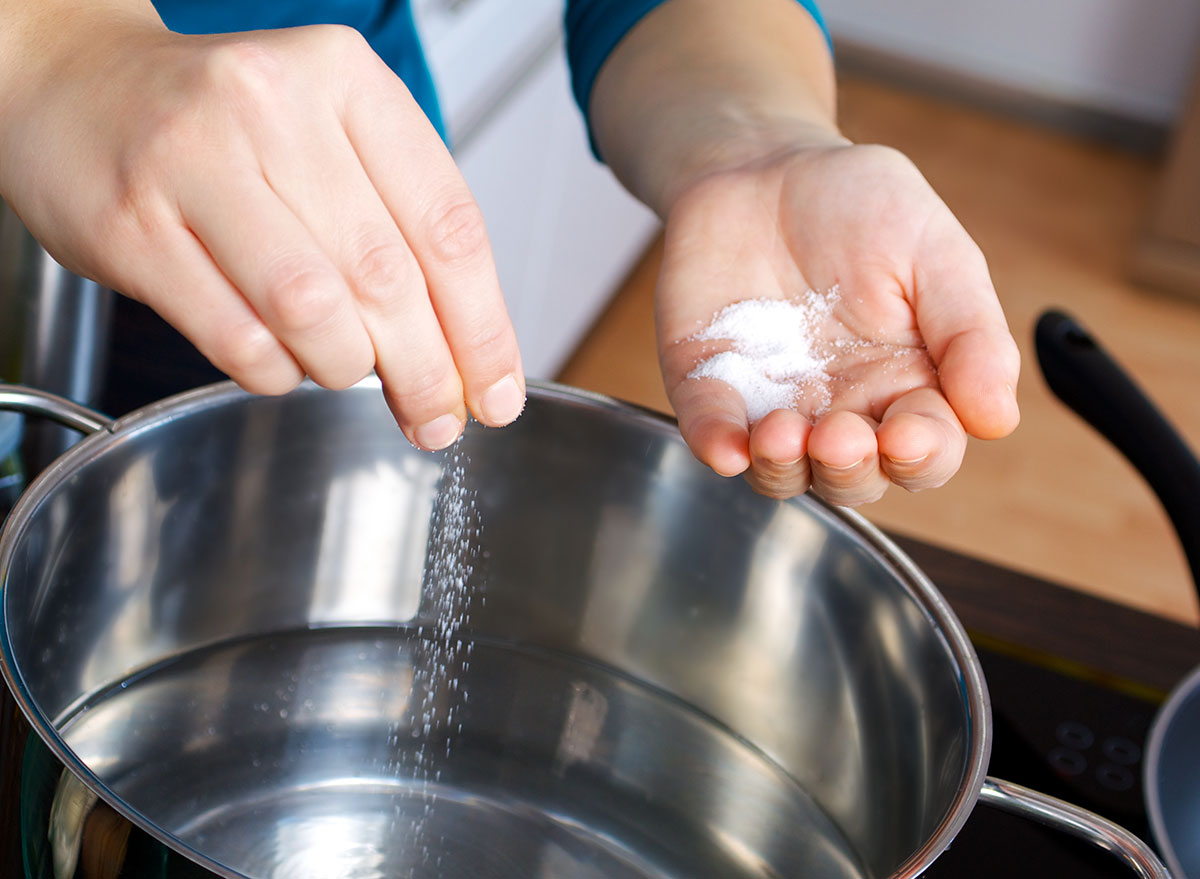
While you could just add salt to your pasta dish while cooking it, actually cooking the pasta in salted water will give that bland pasta even more flavor! Next time you're boiling a pot of water to cook pasta, sprinkle in some salt.
You're not prepping your ingredients.
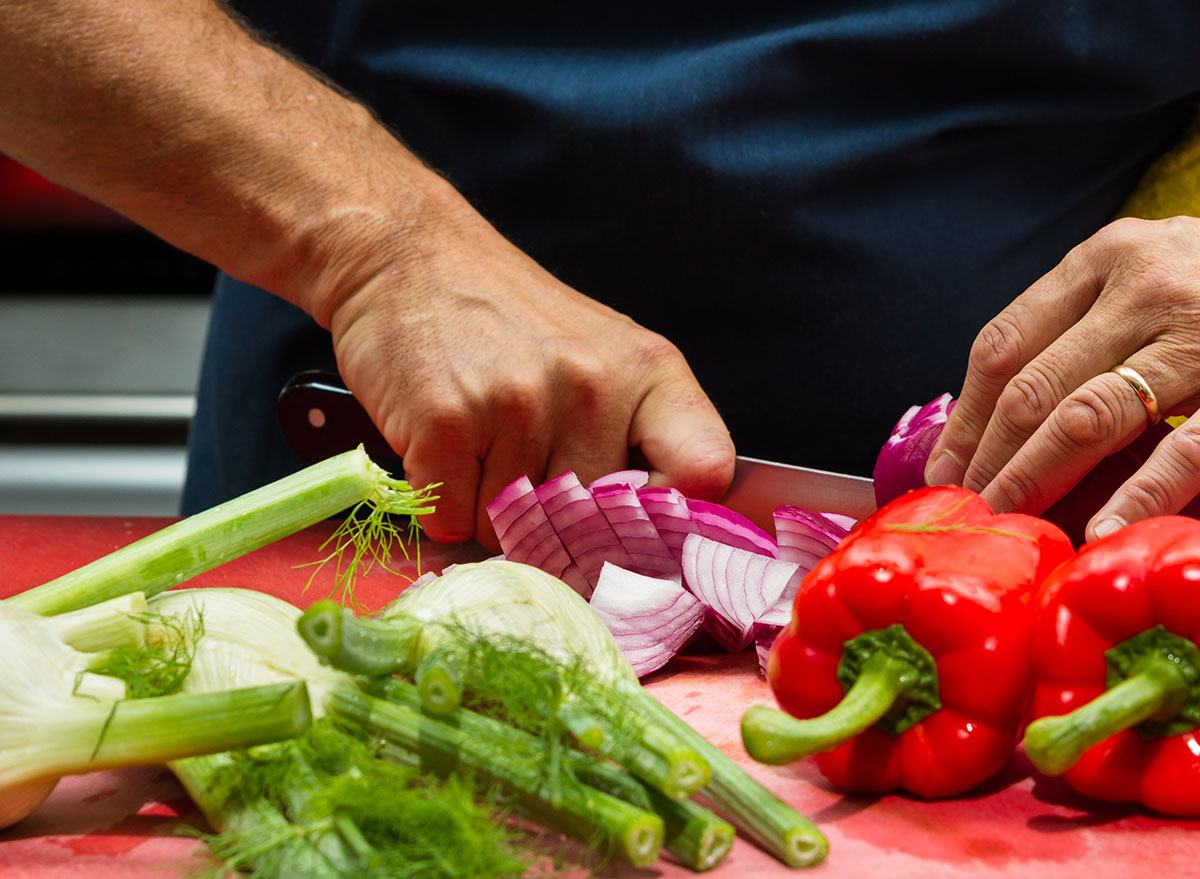
If there are a lot of demanding steps in a recipe—like stirring continuously or whisking a sauce—the last thing you want to do is mess it up or burn it because you had to get another ingredient out of the fridge. Avoid the hassle and prep your ingredients beforehand by measuring them out and placing them on the counter, ready to go.
You'll also want to prep your ingredients when you bake, too! As well as these 23 Best Baking Tips of All Time.
You're cleaning your chicken.
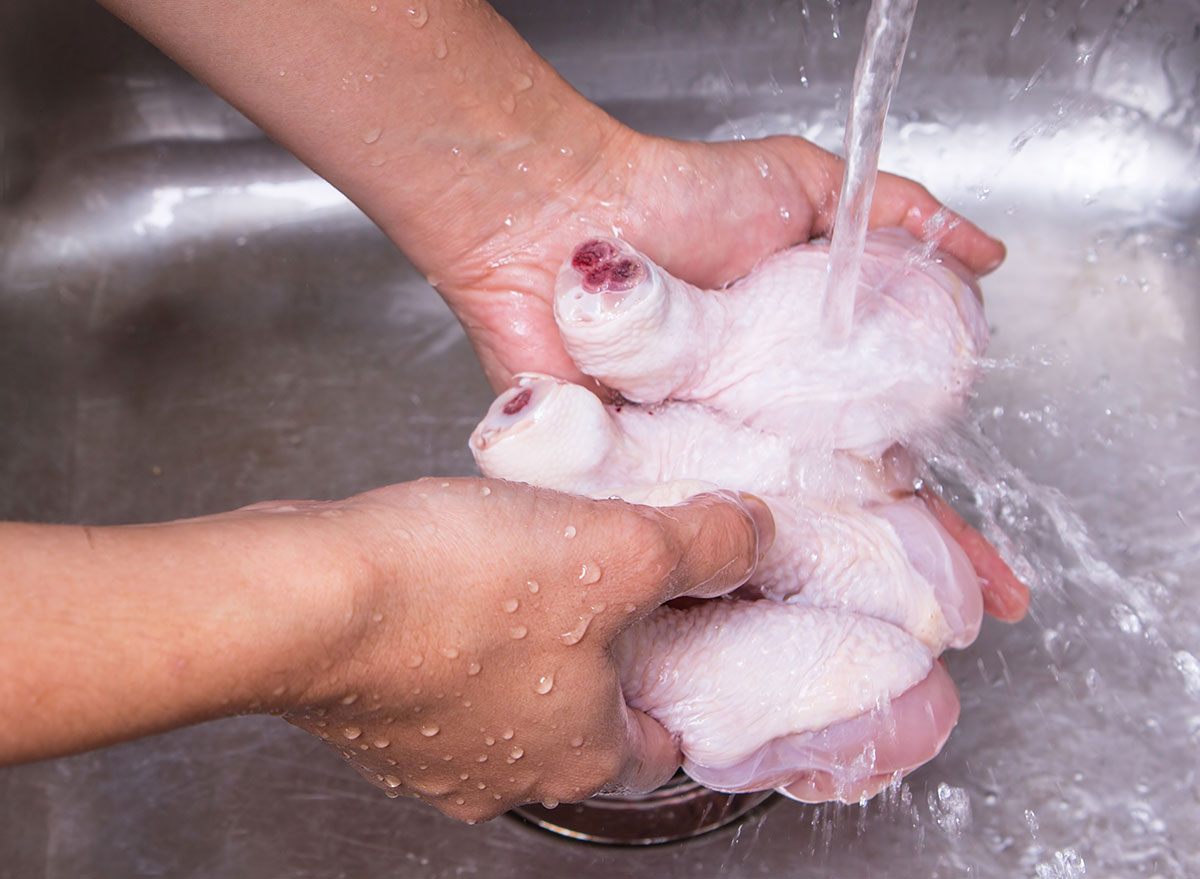
Cleaning your chicken may seem like a productive and safe thing to do, but in reality, it could make you even more sick. By rinsing your chicken, there's actually the potential for foodborne illness to spread on your surfaces and utensils. Here's why you should never rinse raw chicken.
You're not organizing your fridge properly.

Your fridge could actually be making you sick if you're not organizing it properly! Because the last thing you want to do is to have uncooked meat sitting on the top shelf above all of your fresh produce and prepared foods. Here's how to organize your fridge properly to keep your food fresh and your family safe.
You're not switching out your sponges often enough.
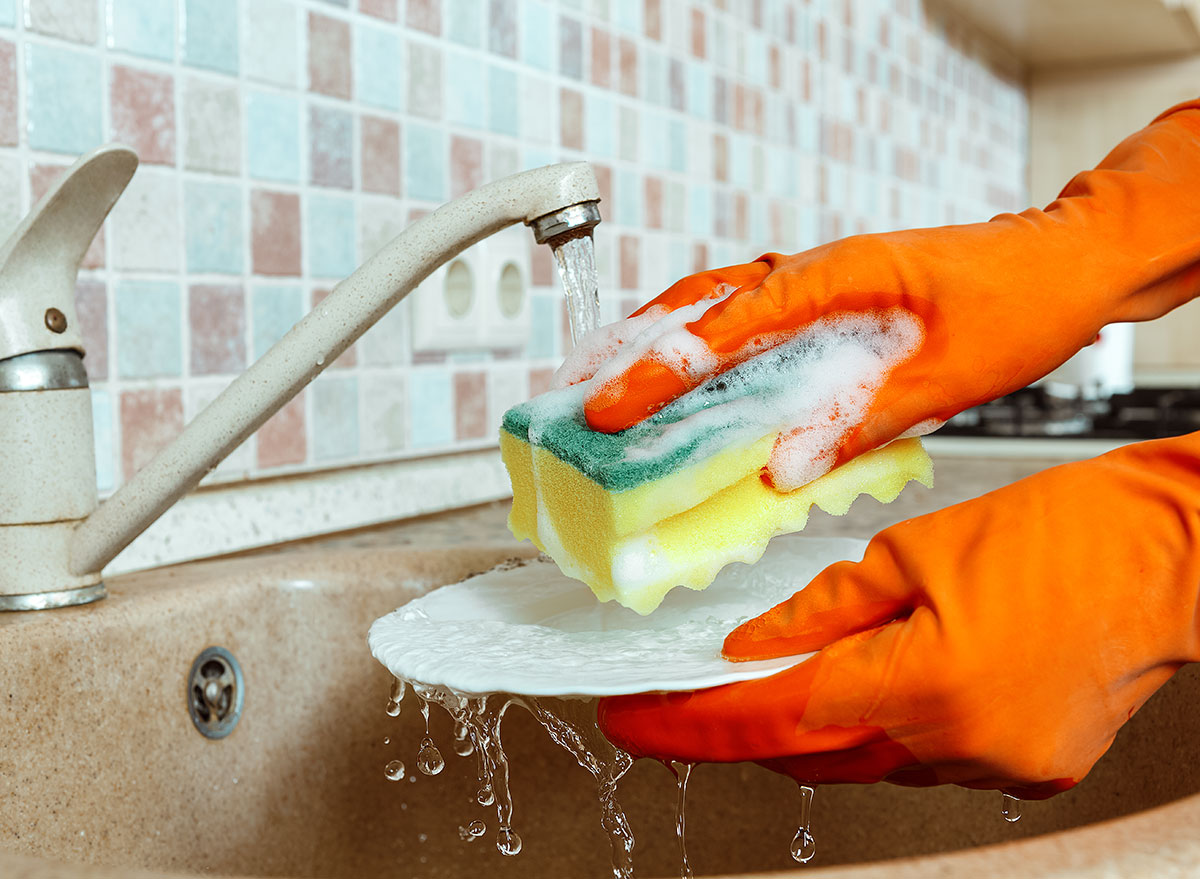
Sponges are typically breeding grounds for germs, which is why you should be replacing it at least every month! One study from 2017 shows that sponges can carry up to 362 types of bacteria, including fecal matter! If you don't have a dishwasher and you're using a sponge more regularly, it may even be wise to switch it out every two weeks or so. Here's How Often You Should Change Your Sponge.


